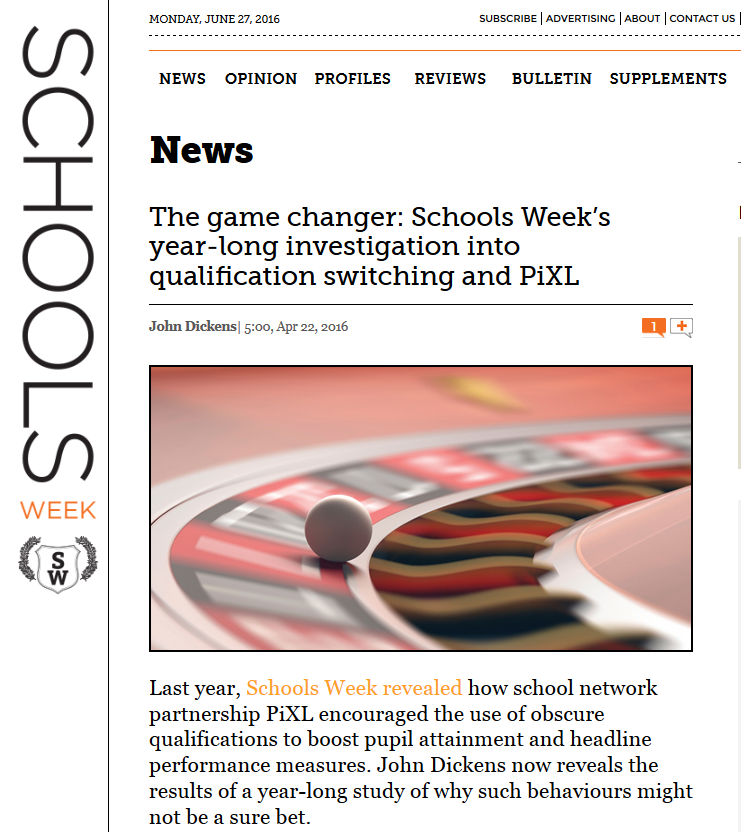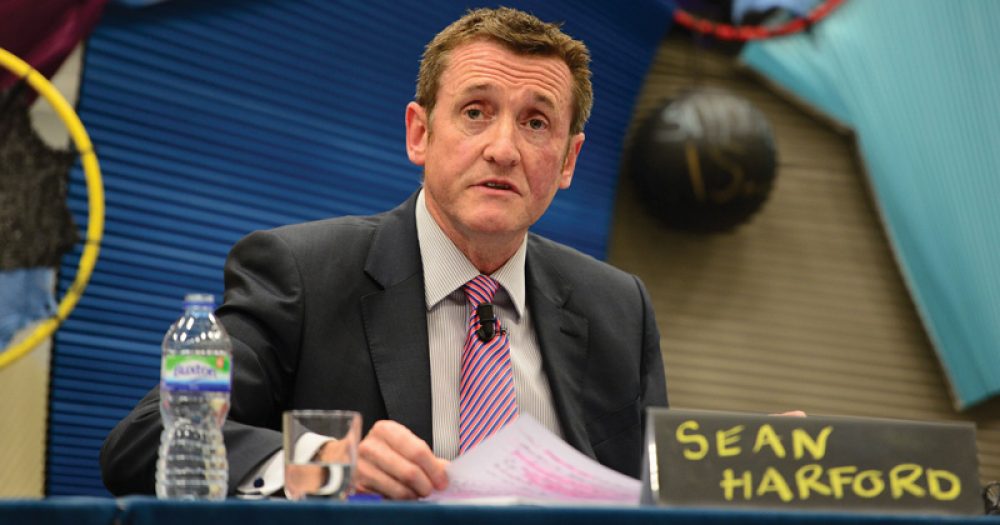Ofsted has formally written to inspectors urging them to look out for schools entering pupils for qualifications to boost their league-table standings, rather than in the best interests of pupils.
The move follows a string of investigations by Schools Week which revealed how schools were entering pupils en-masse to obscure qualifications to boost their performance.
Figures from the exams watchdog Ofqual showed how schools moving large numbers of pupils into different exams each year are more likely to have unpredictable results.

Sean Harford, Ofsted’s national director for schools, already pledged to ensure inspectors take a closer look at this practice.
That has now been formally communicated with a letter to inspectors published today.In it, Ofsted said an analysis of 2015 examination results “indicates some schools may have entered pupils for qualifications specifically to improve overall school results, although this may not have been in the best interests of the pupils”.
A given example was of pupils being entered for multiple qualifications with overlapping subject content.
This was evident with the European Computer Driving Licence (ECDL) qualification, which schools were urged to enter to boost pupil scores.
The PiXL Club, a network of schools that aims to raise attainment in schools, told its members schools were planning to run three days of intensive classes to teach the qualification – worth the equivalent of a GCSE.
However the Ofsted letter said high entry for overlapping qualifications may affect schools’ scores in accountability measures including five GCSEs A* to C and also Progress 8.
Inspectors were told to consider whether the curriculum meets the needs of pupils and whether governors have considered and evaluated leaders’ rationale for entry policy changes.
Should there be any concerns, inspectors are urged to look into entry tables to identify subjects with a higher percentage of entry than the national figures, check whether the school has poor or high results in comparison with national figures in these subjects.
Save



Your thoughts